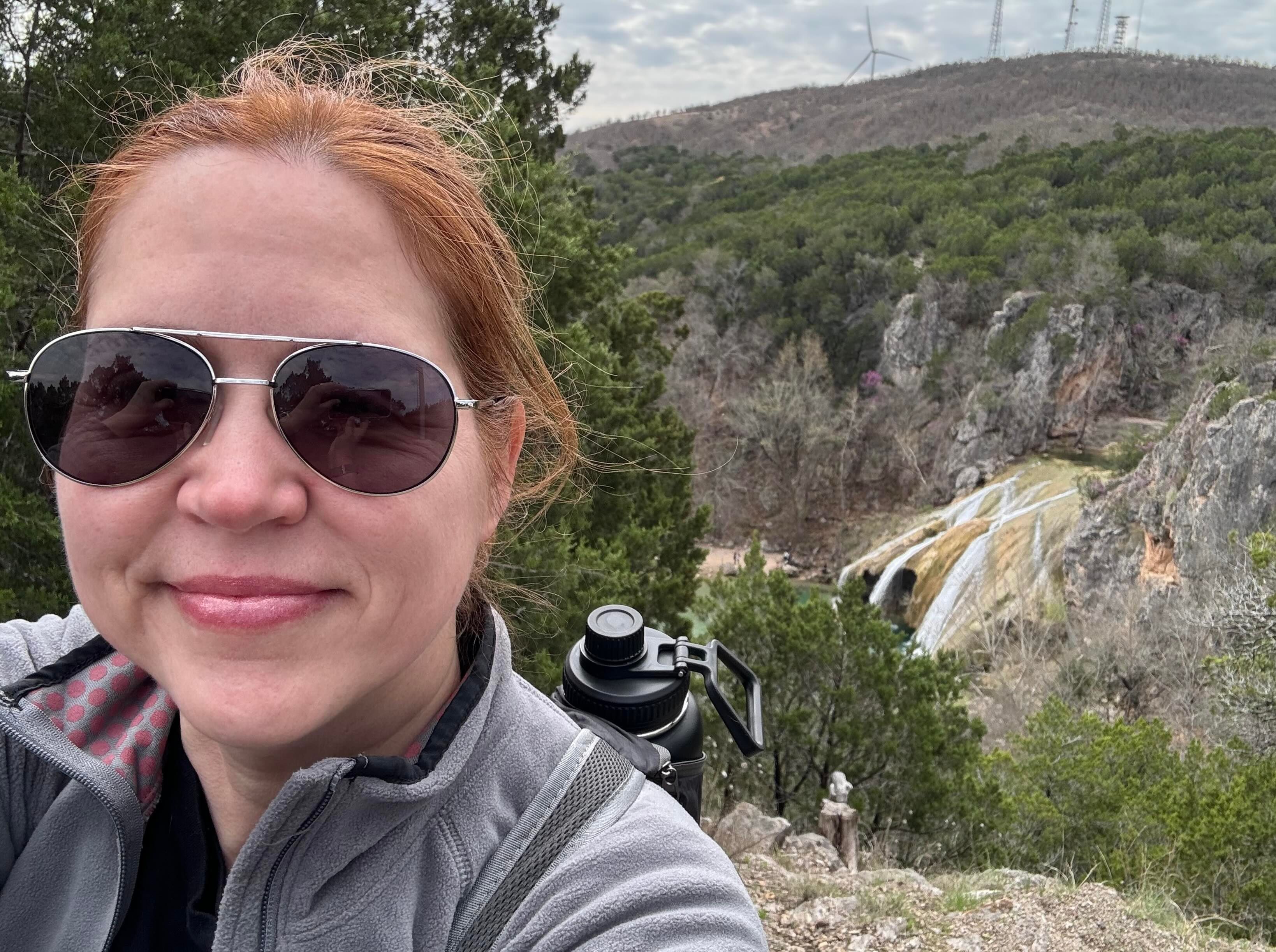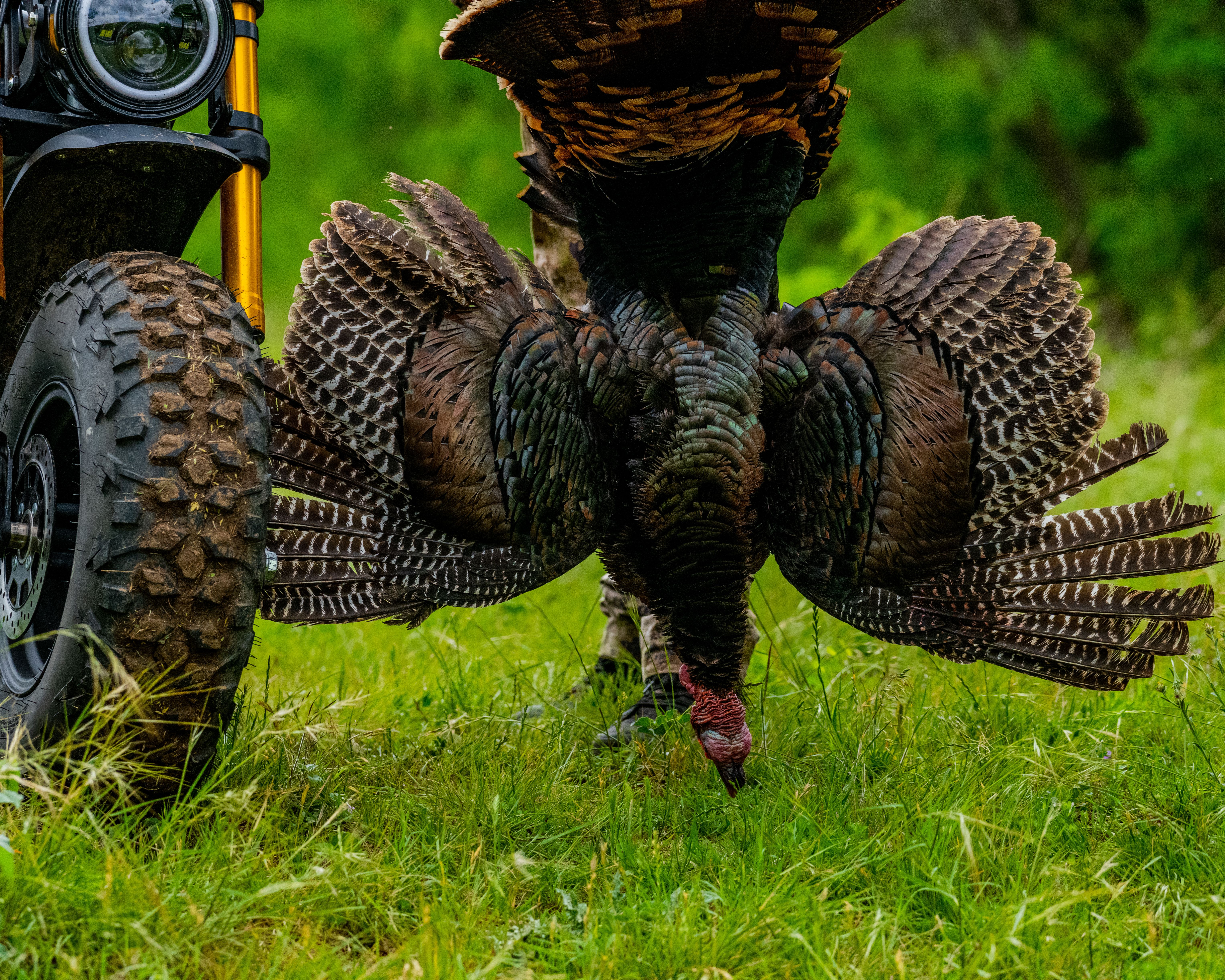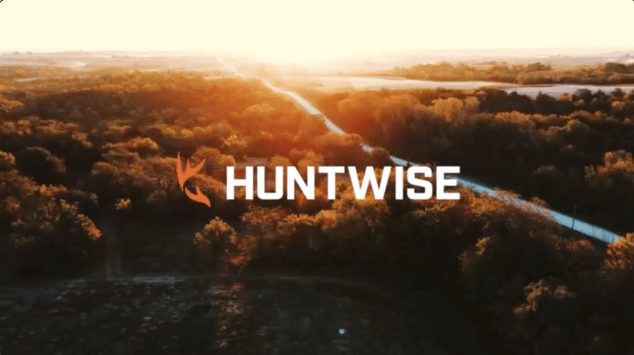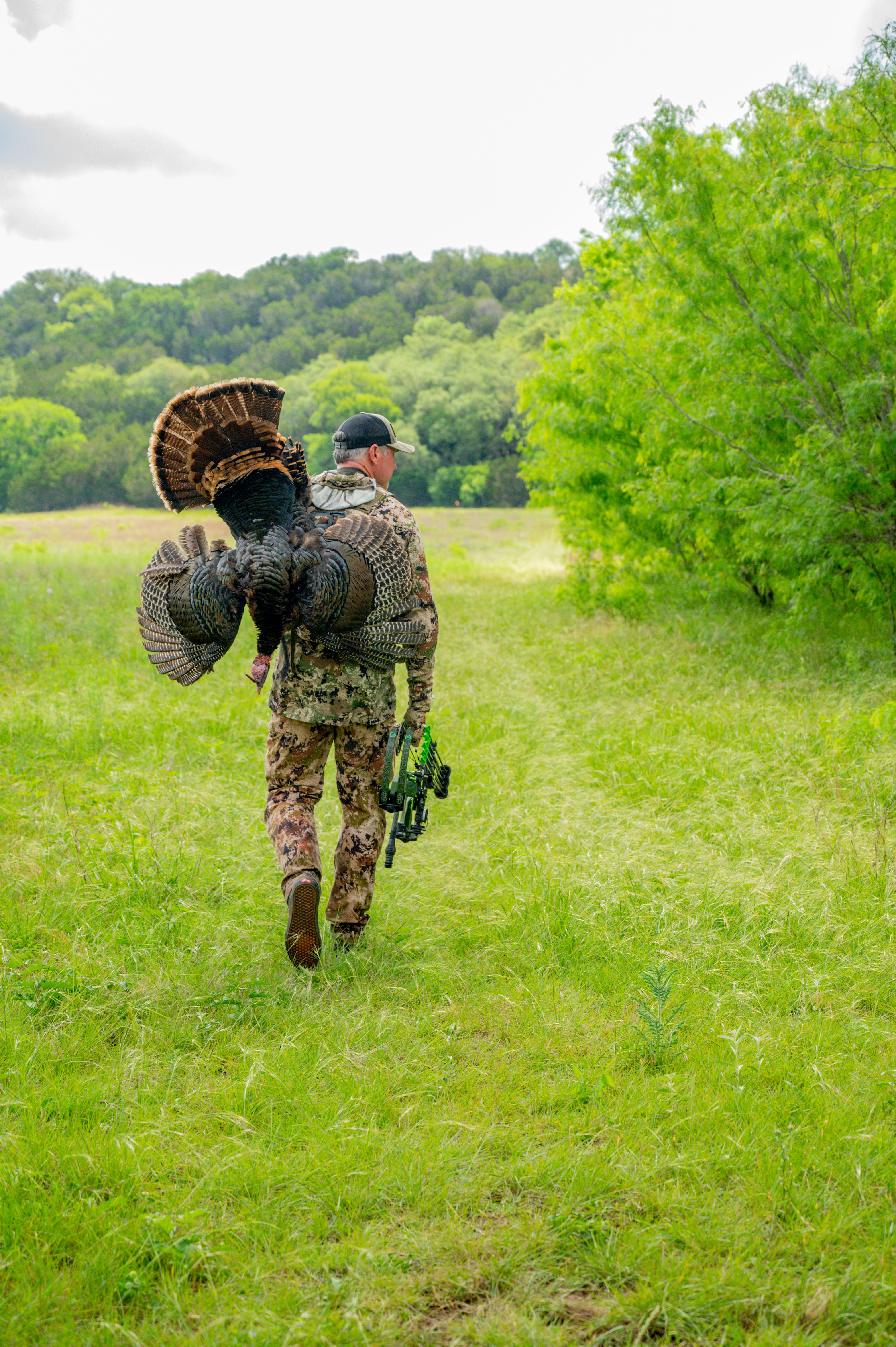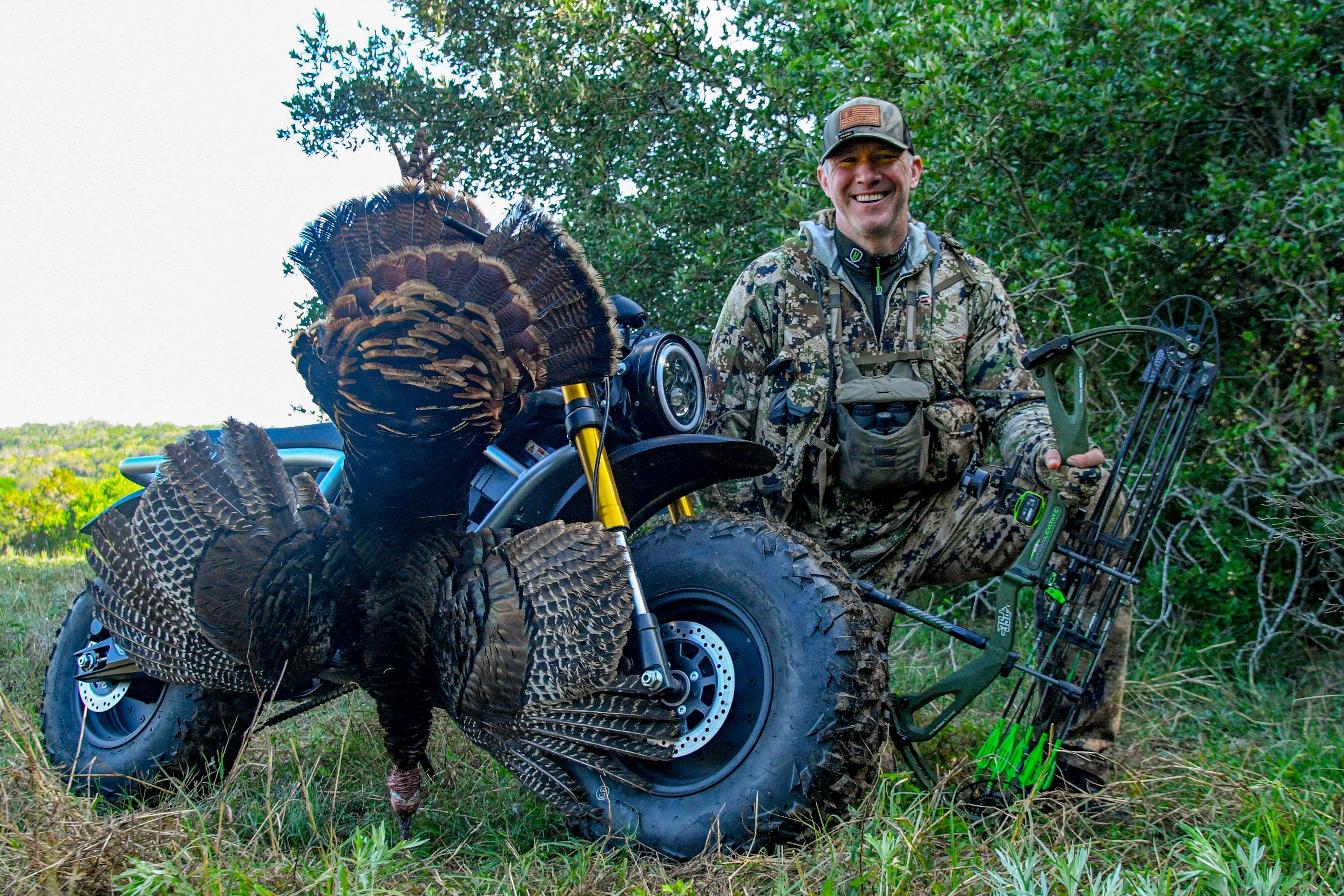Field Guide / Our Pros
Bowhunting: Turkey Hunting Tips with John Dudley
We recently talked with John Dudley about turkey hunting with a bow. While he emphasized that he’s not a turkey expert and bowhunting turkey is a different type of challenge than hunting deer with a bow, he shared some unconventional approaches to bringing home a tom each season.
Previous in Our Pros
More Content Like This
Meet the Team: HuntWise Pro Staff
Born out of the desire to combine technology and weather, HuntWise exists to optimize the hunter's time and success in the field by providing the right information at the right time. Read More
Read More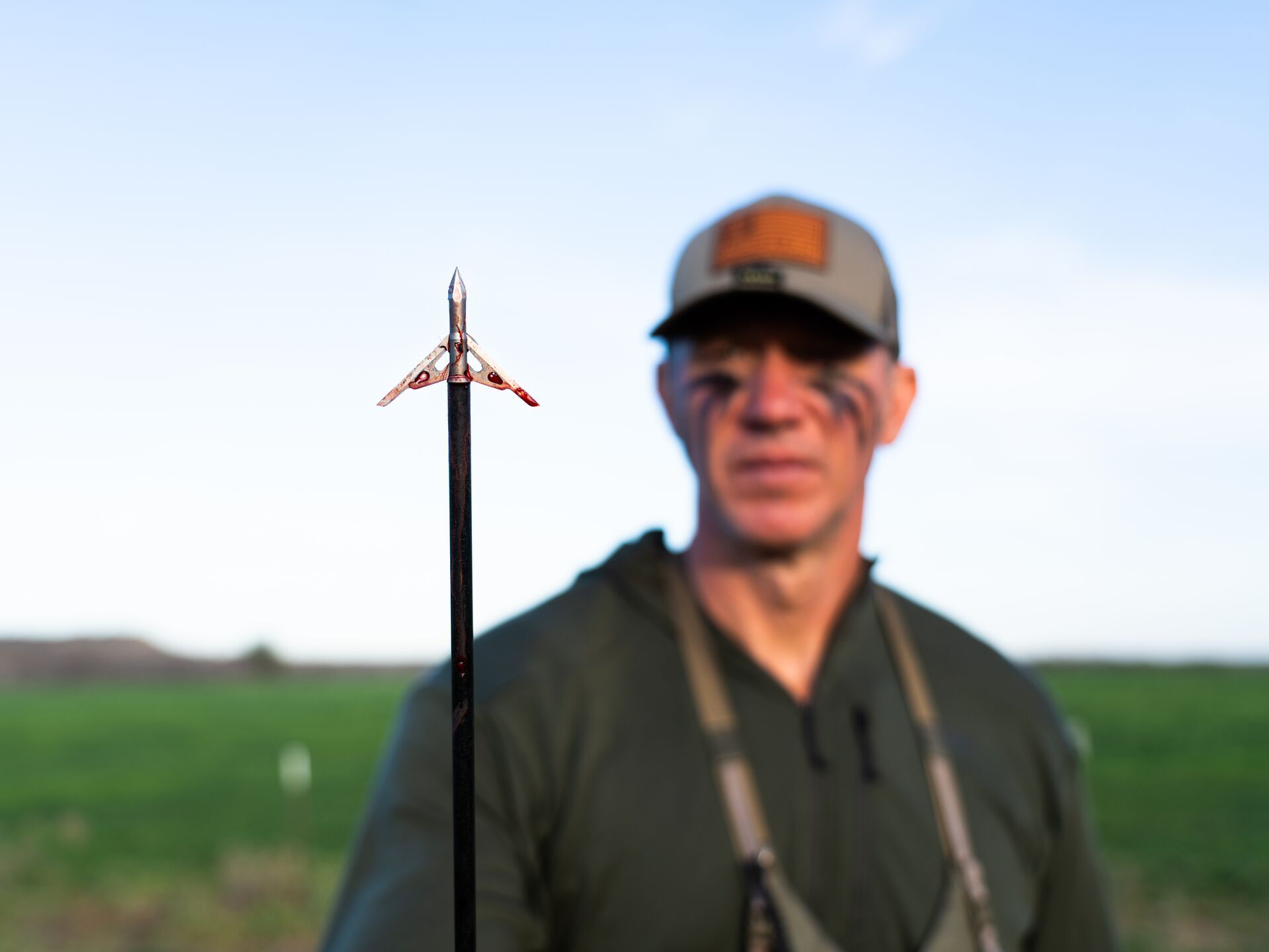
Bowhunting with John Dudley: What Can You Hunt with a Compound Bow?
What’s the largest game animal you can hunt with a compound bow? Many hunters ask this question when trying to determine the best tool for a big-game hunting trip. Read More
Read More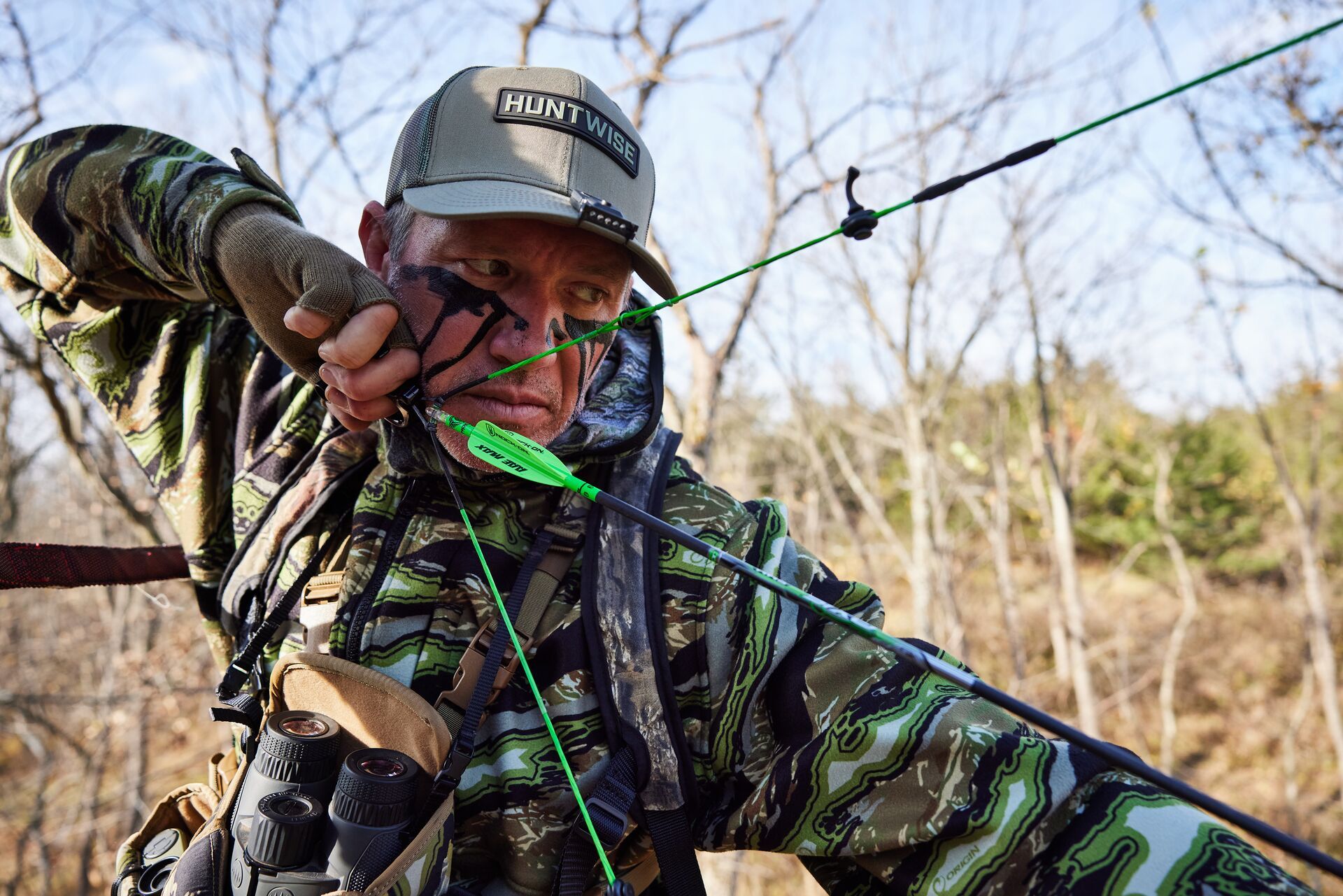
How to Get Better at Archery: Bowhunting Tips with John Dudley
Bowhunting deer and big game seasons will be here before you know it. Are you ready? We sat down with John Dudley, HuntWise Pro and the most trusted source in archery with NockOn Archery, to ask him how bowhunters can become better bowhunters. Read More
Read More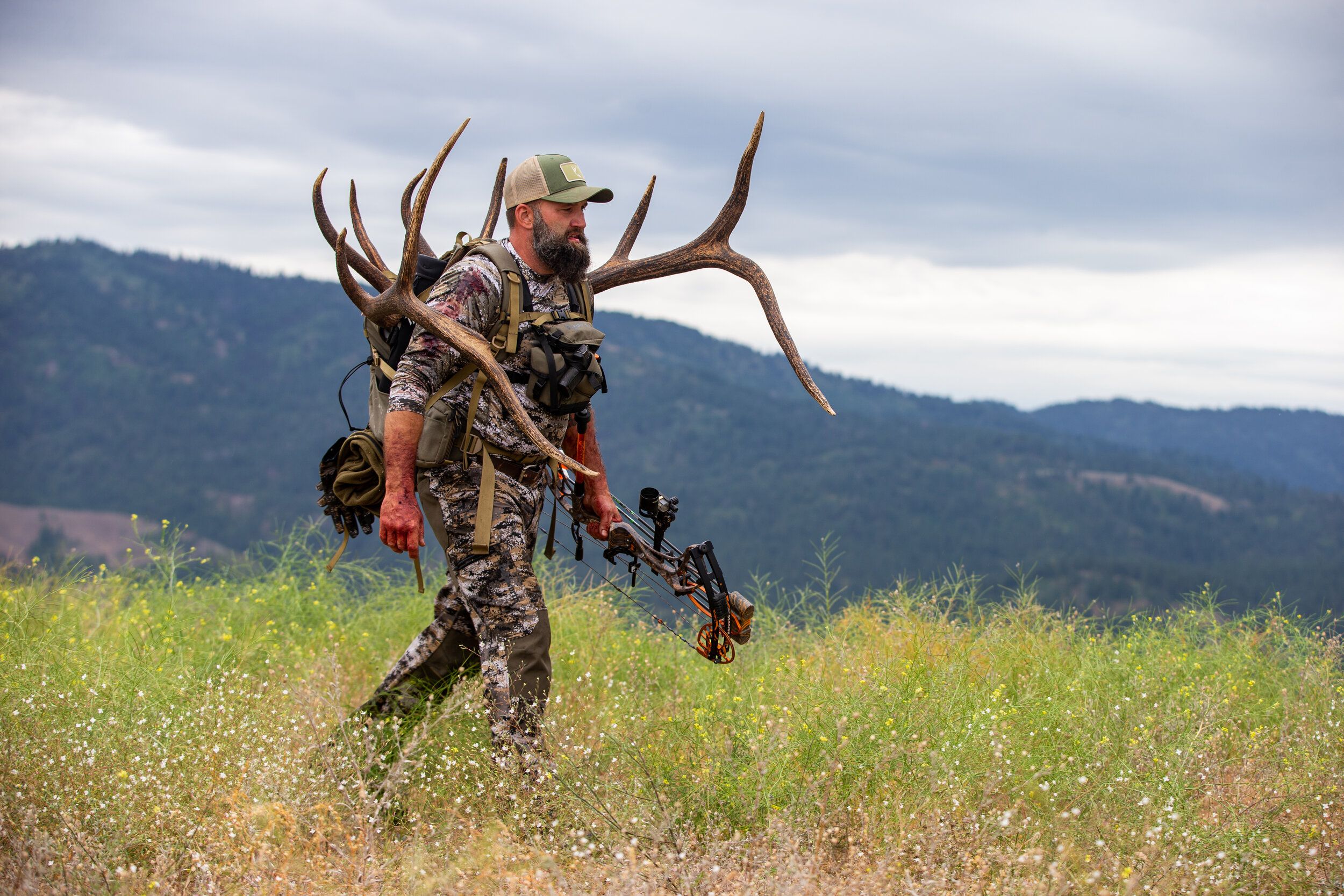 Our Pros
Our ProsMeet the Team: HuntWise Pro Staff
Born out of the desire to combine technology and weather, HuntWise exists to optimize the hunter's time and success in the field by providing the right information at the right time. Read More
Read More Our Pros
Our ProsBowhunting with John Dudley: What Can You Hunt with a Compound Bow?
What’s the largest game animal you can hunt with a compound bow? Many hunters ask this question when trying to determine the best tool for a big-game hunting trip. Read More
Read More Our Pros
Our ProsHow to Get Better at Archery: Bowhunting Tips with John Dudley
Bowhunting deer and big game seasons will be here before you know it. Are you ready? We sat down with John Dudley, HuntWise Pro and the most trusted source in archery with NockOn Archery, to ask him how bowhunters can become better bowhunters. Read More
Read More
1 of 3

